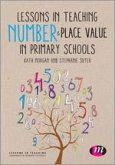Behind the Diversity Numbers uncovers how frequently used approaches to examine and understand race-related issues on college campuses can reinforce racism and inequality, rather than combat them. The book argues that educational leaders must look beyond quantitative metrics in order to develop institutional policies and practices that promote racial equality. Based on nearly thirty years of data and research, this book will enhance how institutions, higher education agencies, and policy makers think about what should be done to reduce racial inequality and create diverse and equitable campuses. "Byrd's book offers an important and clear-eyed critique of quantitative data and analyses, revealing how the field's reliance on 'the numbers' exacerbates educational disparities we strive to eliminate. This is a must-read for education researchers, leaders, and policy makers, and a reminder that we must integrate multiple research methods, center narratives, and interrogate our and others' biases to fight inequity in higher education." --Kimberly A. Griffin, professor and associate dean of Graduate Studies and Faculty Affairs, College of Education, University of Maryland "Byrd offers a deeply nuanced text that critically unpacks how quantitative analyses do not capture the depths of systemic racism, especially in affirmative action cases. In this important book, he challenges quantitative scholars to more thoroughly and meaningfully engage structured inequities in our work, moving from diversity to racism in our analyses." --Nolan L. Cabrera, associate professor, University of Arizona "Byrd rightly calls for a rethinking of how higher education institutions address racism by looking beyond the numbers. In doing this, he reengages foundational research concerning racism in higher education that has been obfuscated by cheap 'diversity talk' to offer both new directions for research in higher education and bold recommendations for meaningful organizational and policy change." --Mitchell J. Chang, professor, University of California, Los Angeles W. Carson Byrd is faculty director of research initiatives for the National Center for Institutional Diversity at the University of Michigan. Walter R. Allen is distinguished professor of Education (and of Sociology) and Allan Murray Cartter Chair in Higher Education at UCLA Graduate School of Education and Information Studies.
Hinweis: Dieser Artikel kann nur an eine deutsche Lieferadresse ausgeliefert werden.
Hinweis: Dieser Artikel kann nur an eine deutsche Lieferadresse ausgeliefert werden.








